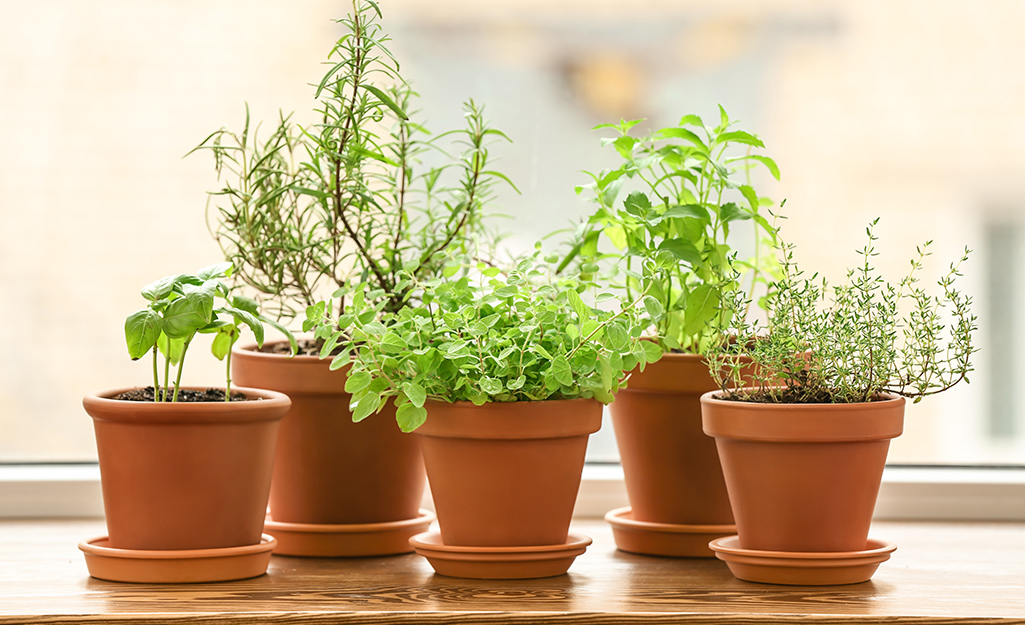Growing herbs is one of the most rewarding gardening experiences. They’re easy to grow, versatile, and bring fresh flavor to your cooking, whether you have a big backyard or a small balcony. Herb pots and raised garden beds are good ways to grow herbs, allowing you to create thriving gardens regardless of your available space.
Some herbs flourish in the confined space of pots, where you can keep them close for quick snips. Others grow best in raised beds, where they have the space to stretch their roots and spread their leaves. This article looks into which herbs love pots, which are better suited for raised beds, and how to care for them to get the most out of your herb garden.
Herbs That Thrive in Pots
If you’re short on space or want to keep certain herbs in check, herb pots are the way to go. Pots allow you to move plants around, control their environment, and prevent aggressive herbs from taking over your garden. Plus, they’re perfect for patios, balconies, and kitchen windows, keeping fresh flavors within reach.
Mint
Mint is a must-have, but if you’ve grown it before, you know it has a mind of its own. Plant mint in the ground, and it’ll spread everywhere, crowding out other plants before you know it. That’s why it’s perfect for pots, as it keeps the plant contained while still giving you all the fragrant leaves you need for teas, mojitos, or desserts.
Basil
Nothing beats fresh basil for salads, pasta, or homemade pesto. Basil loves the sun and warm temperatures, making it perfect for pots on a sunny patio or balcony. Pots make it easy to move basil around to catch every bit of sunshine or bring it inside when temperatures dip.
Thyme
If you’re looking for a low-maintenance herb, thyme is your go-to. It’s compact, drought-tolerant, and perfect for small pots. Place thyme in a bright, sunny spot, and it’ll reward you with leaves for cooking or herbal teas.
Chives
Chives are one of those herbs that are almost impossible to mess up. They’re easy to grow in pots, and their mild onion flavor is perfect for sprinkling over everything from scrambled eggs to baked potatoes. Chives prefer well-draining soil and moderate watering, so they’re great for smaller pots that don’t need too much attention. As a bonus, they’re perennial, meaning they’ll come back year after year with minimal effort.
Herbs Ideal for Raised Garden Beds
If you have the space for raised garden beds, you can grow larger herbs or mix several varieties. Raised beds offer more room for roots to spread, better drainage, and the opportunity to grow herbs alongside vegetables.
Rosemary
Rosemary grows into a beautiful, woody shrub that needs more space to spread. Raised beds are perfect for rosemary because they provide the well-drained soil it loves and plenty of sunshine. Once established, rosemary is fairly drought-tolerant, meaning you won’t have to water it constantly.
Oregano
Oregano is a great companion plant for vegetables, and it thrives in raised beds where it has room to grow. Like mint, oregano spreads quickly, but it can share space with tomatoes or peppers in a raised bed without taking over completely.
Lavender
Lavender adds beauty to any garden with its purple flowers and calming fragrance. It thrives in raised beds, where the soil drains quickly, preventing the roots from sitting in water. Lavender needs plenty of sunlight and space, so a raised bed is perfect for giving it the room it needs.
Sage
Sage can grow into a large, bushy plant over time, making raised beds the perfect spot for it. This herb enjoys dry soil and lots of sunlight and is great for seasoning meats, soups, and stews. Like rosemary, sage is a hardy plant that doesn’t need constant watering.
Tips for Successful Herb Growth in Pots and Raised Beds
- Watering Needs:
Herb pots dry out faster than raised beds, so herbs in containers will need more frequent watering. Keep an eye on the soil and water when the top layer feels dry.
- Fertilization:
Use organic fertilizers every few weeks to keep your herbs growing strong. Container-grown herbs may need more feeding since nutrients can wash out of the soil.
- Companion Planting:
Some herbs grow better together. Basil and oregano, for example, complement each other’s flavors and do well planted side by side.


